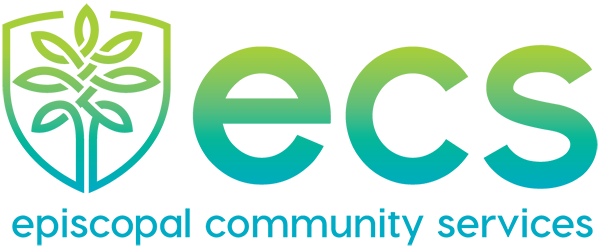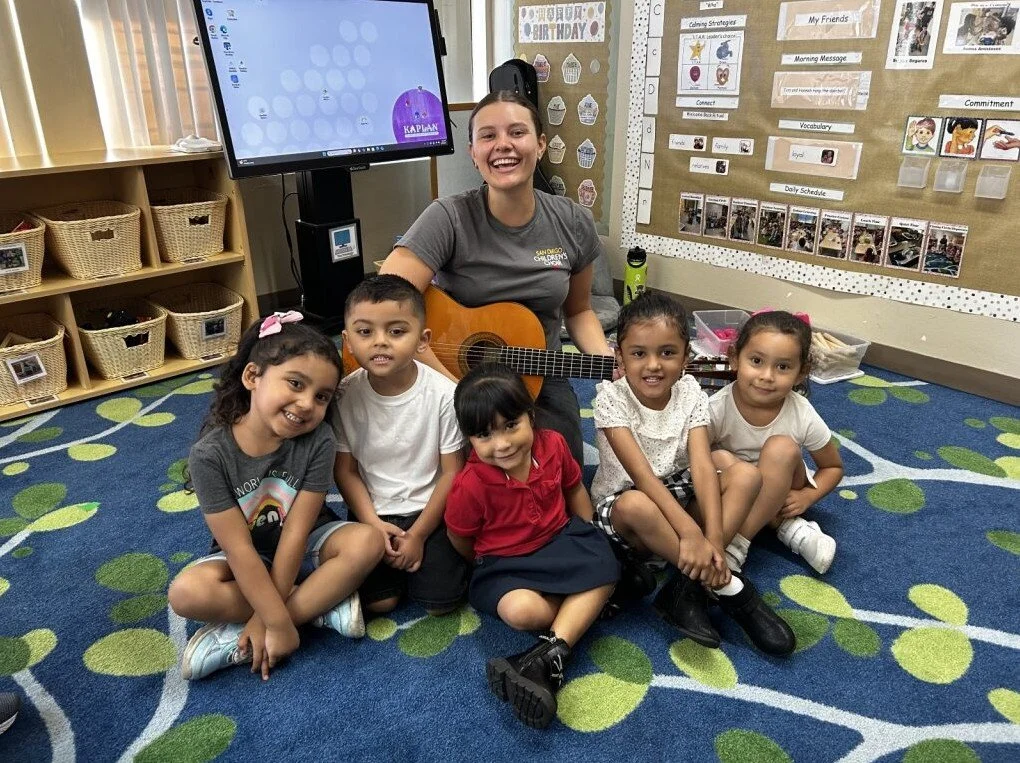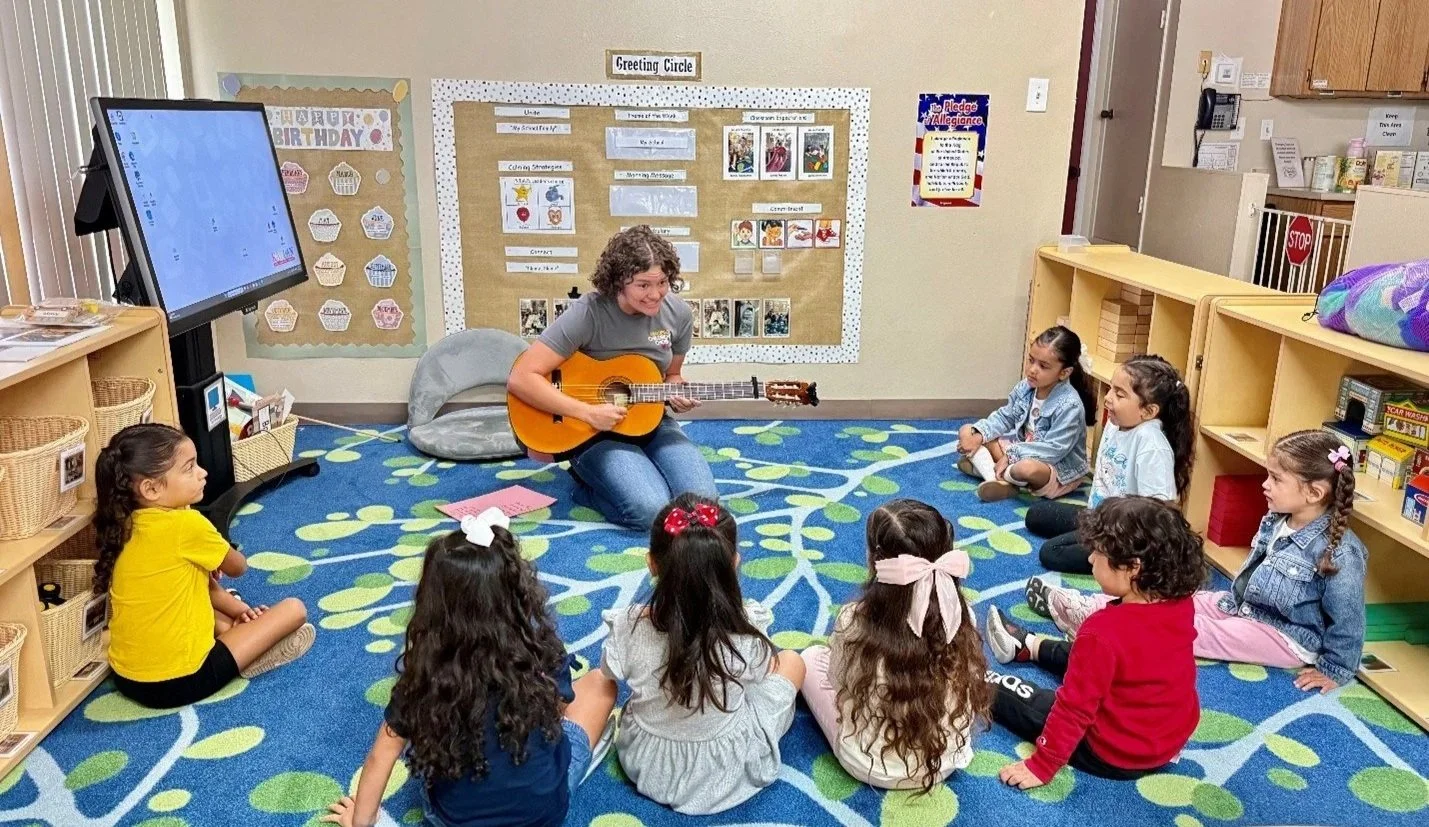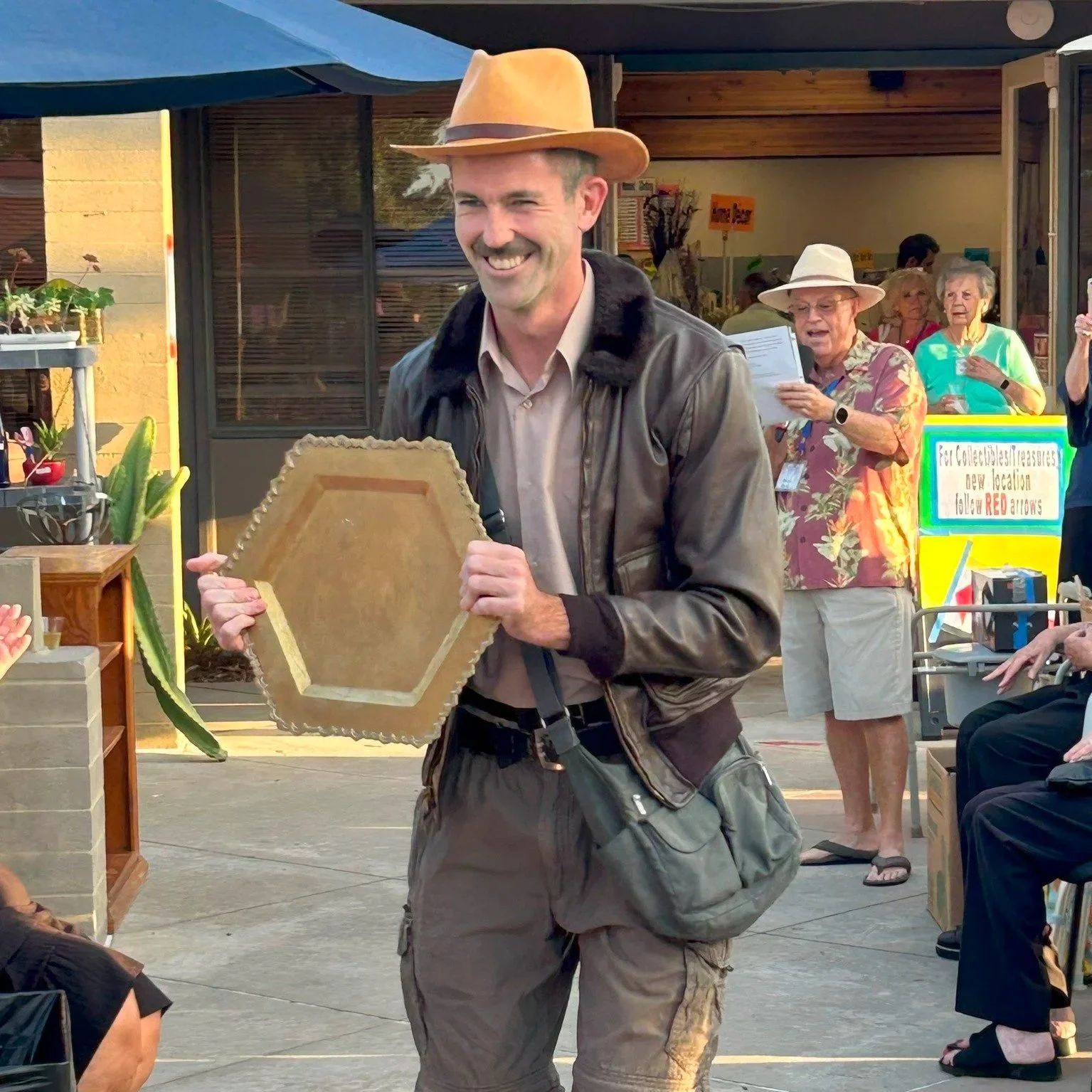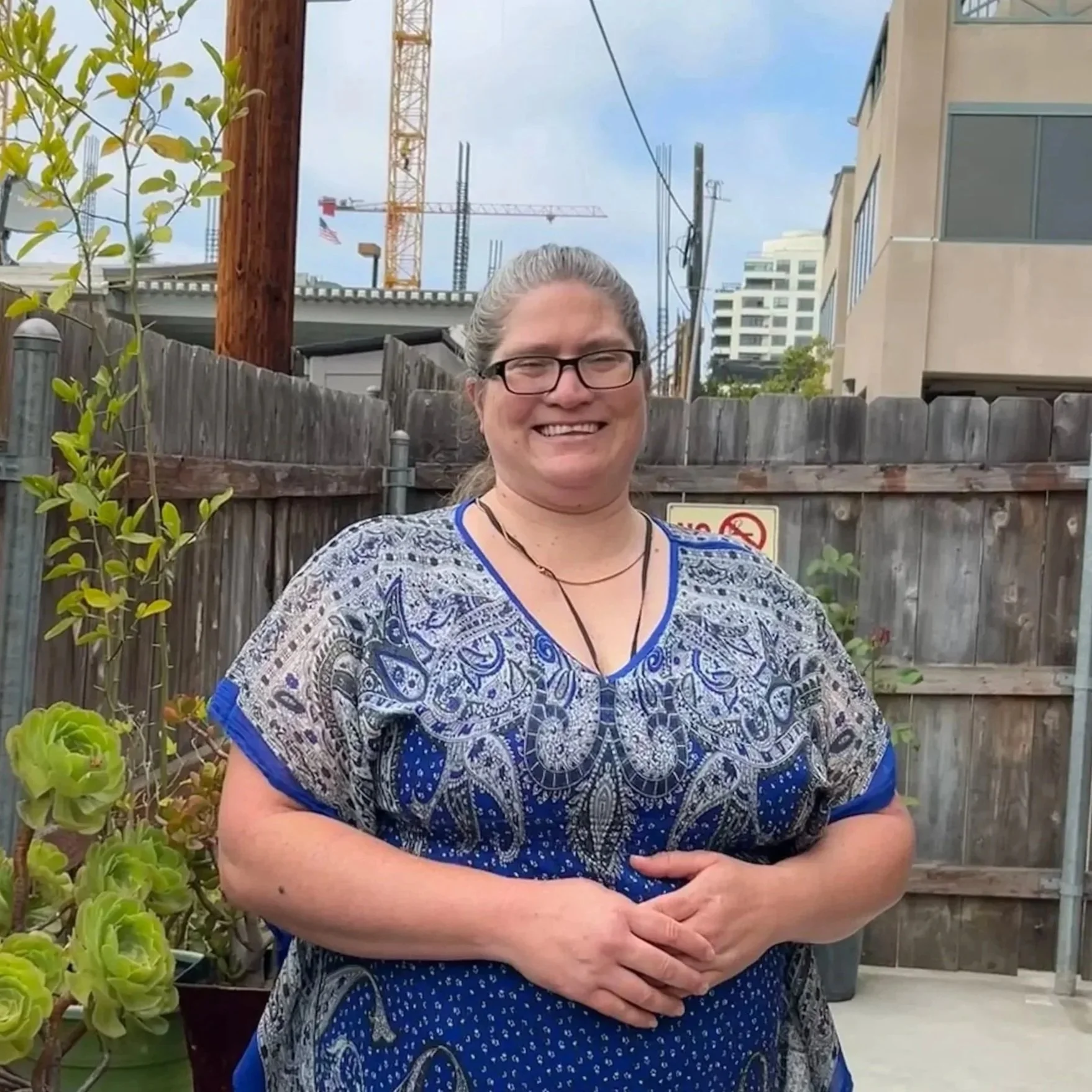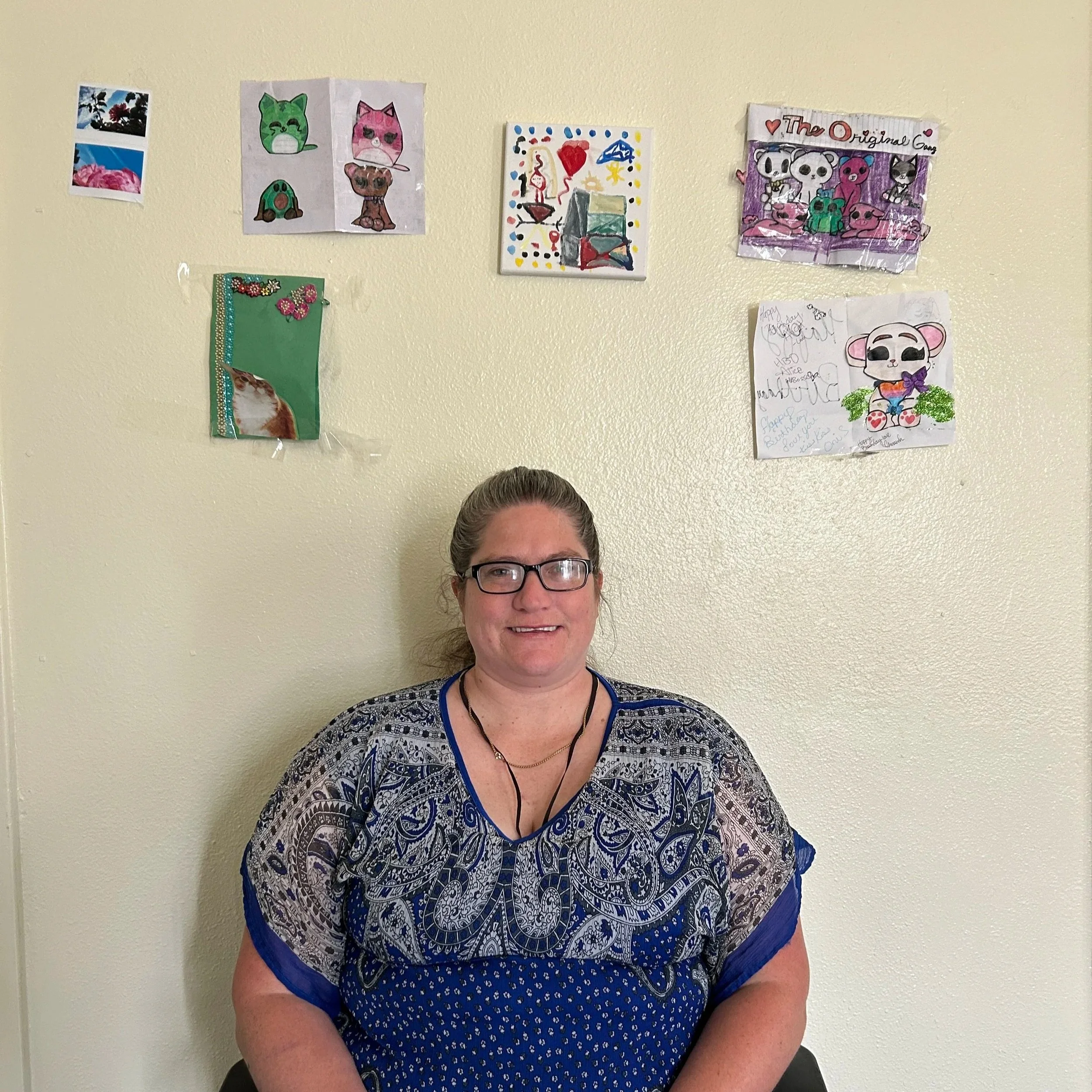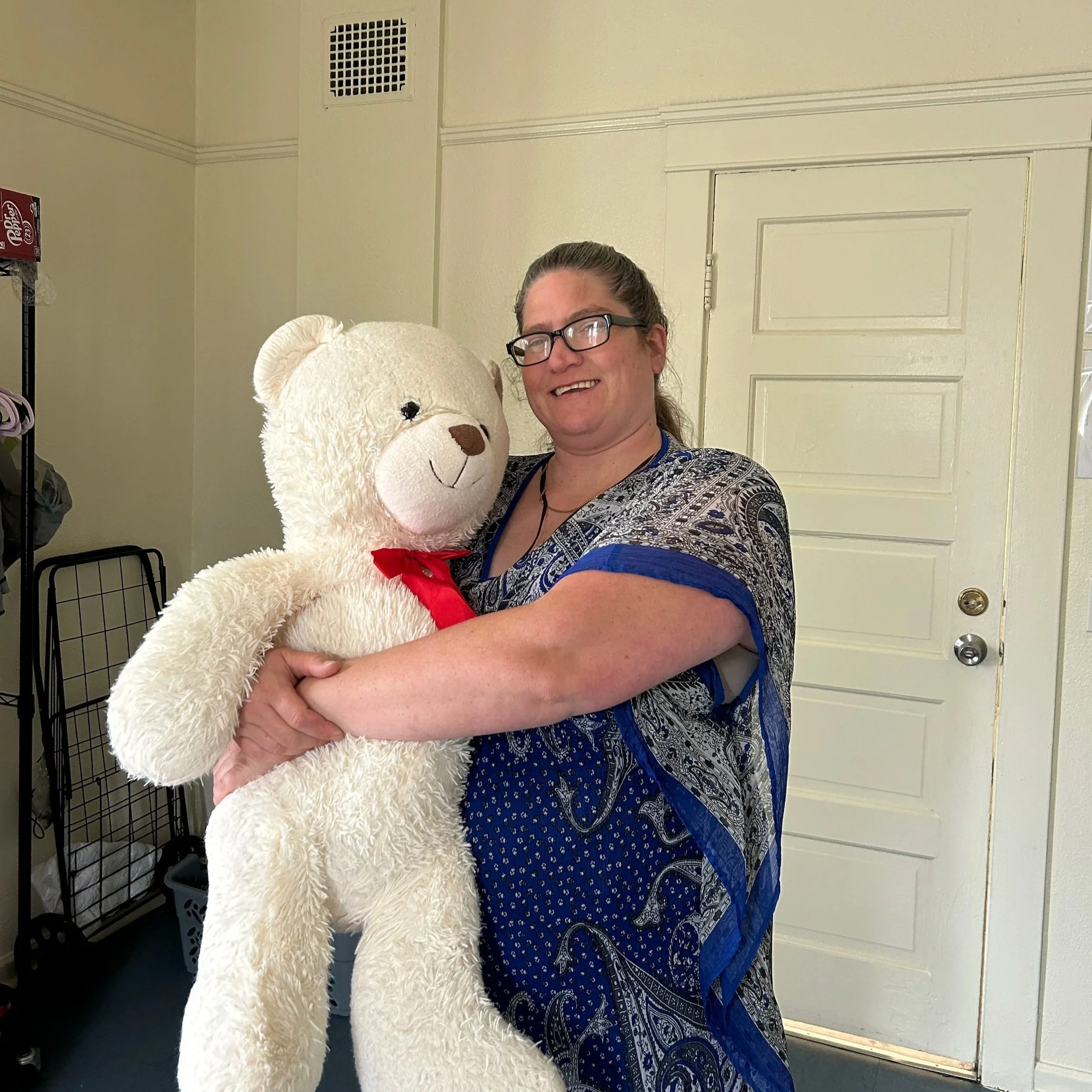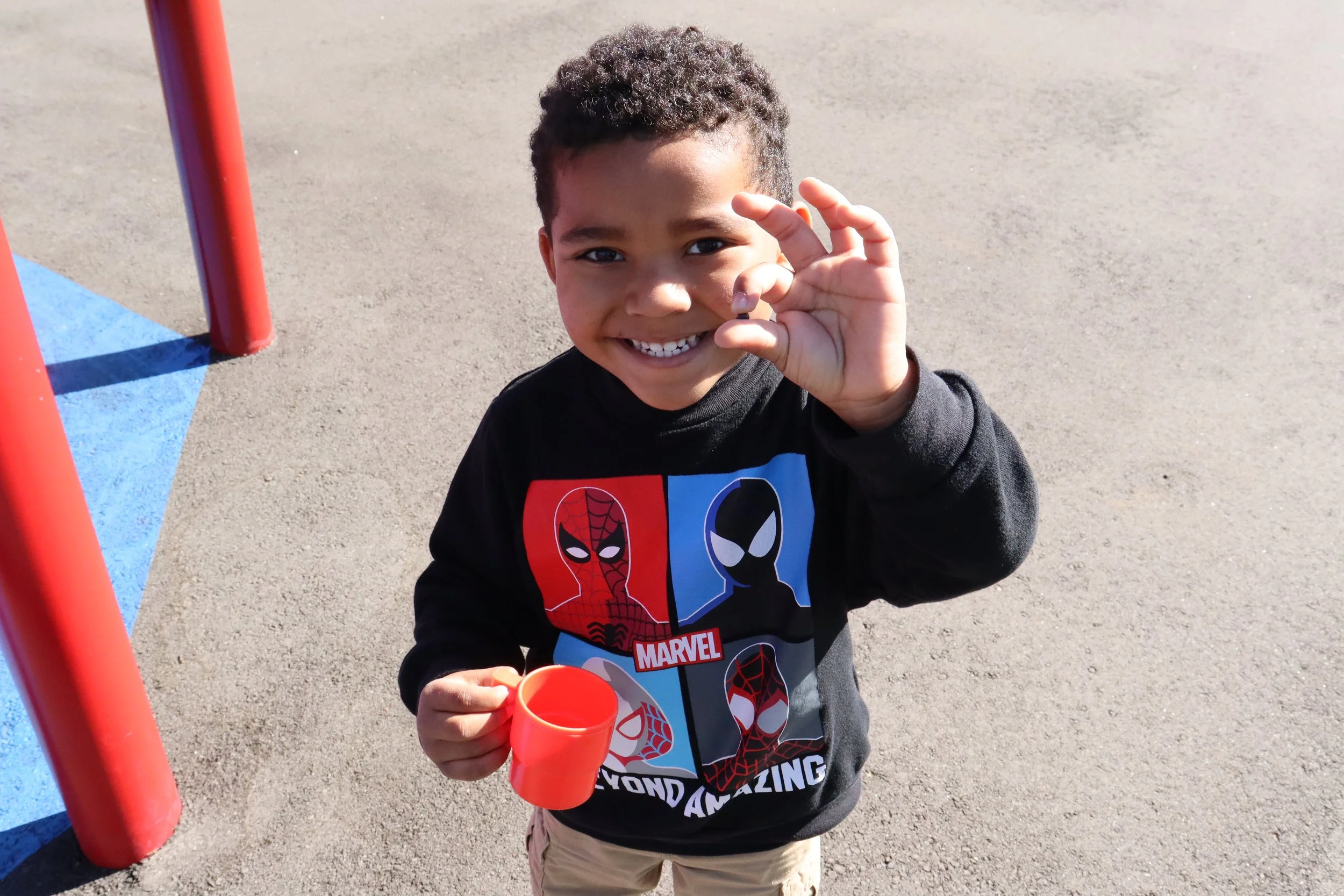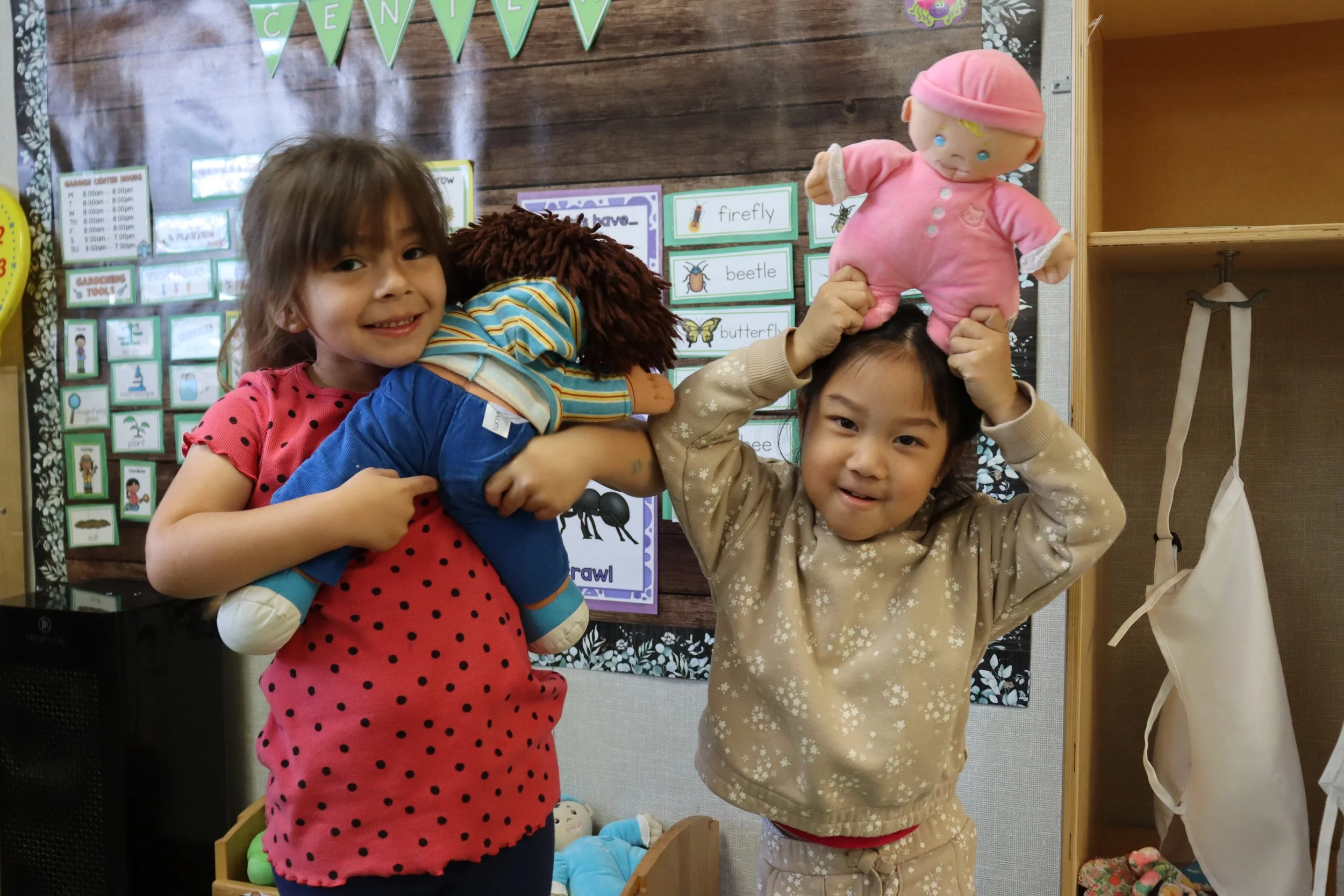The Kodály Music Program gives students an early introduction to the arts. September 2025.
As part of an effort to expand arts education for our littlest learners, ECS launched a Kodály (pronounced code-I) music pilot program at ECS San Ysidro Head Start. Kodály music lessons began last month and will include 14 weekly lessons throughout the semester, wrapping the year with an “in-formance” where families and caregivers will be invited to join their students in singing and moving together. ECS is one of only a few programs in San Diego to offer these specialized music lessons and it is the only program of its kind in the South Bay region.
A Kodály-qualified instructor engages students in listening and singing along to songs. August 2025.
This initiative would not be possible without donor support and the partnership of the San Diego Children’s Choir. The Kodály program was generously funded by an anonymous music lover who seeks to introduce the love of music to the next generation of students. Their gift provides supplies, materials, and operational expenses to launch this first-of-its-kind program and open up a world of musical expression for our students. The San Diego Children’s Choir provided the Kodály trained instructor.
The Kodály music education method originated in Hungary in the mid-twentieth century. It approaches music education in accordance with a child’s current developmental stage. The first introduction to music is through listening, singing, and movement. Teaching points include rhythm syllables, rhythm sequence and notation, and melodic sequence among other topics designed to build a fundamental understanding of music.
Although these lessons sound complex, the Kodály method uses simple tactics such as singing games, fun and play, and visual, auditory, and kinesthetic elements to fuse enjoyment with key learning milestones.
Students learn the foundations of musical creation and rhythm through movement. August 2025.
The arts are an essential part of a well-rounded education. Research shows a direct correlation between artistic learning and early academic and social-emotional success. However, inequalities in accessibility to arts education are still largely prevalent for students living in lower socioeconomic status areas. A child’s education and development should not be limited by their zip code. ECS aims to break these barriers and provide early access to the arts to ECS students. Through initiatives like the Kodály music program, students will receive the resources and experiences required to meet their emotional, social, and psychological needs. This program will impact over 40 children and their families enrolled at ECS San Ysidro Head Start.
By ensuring that ECS students are engaging in the arts, ECS is setting them up for success as they transition to kindergarten and beyond, building a stronger and happier new generation of San Diegans.
To learn more about ECS’ early childhood education programs visit www.ecsheadstart.org.
